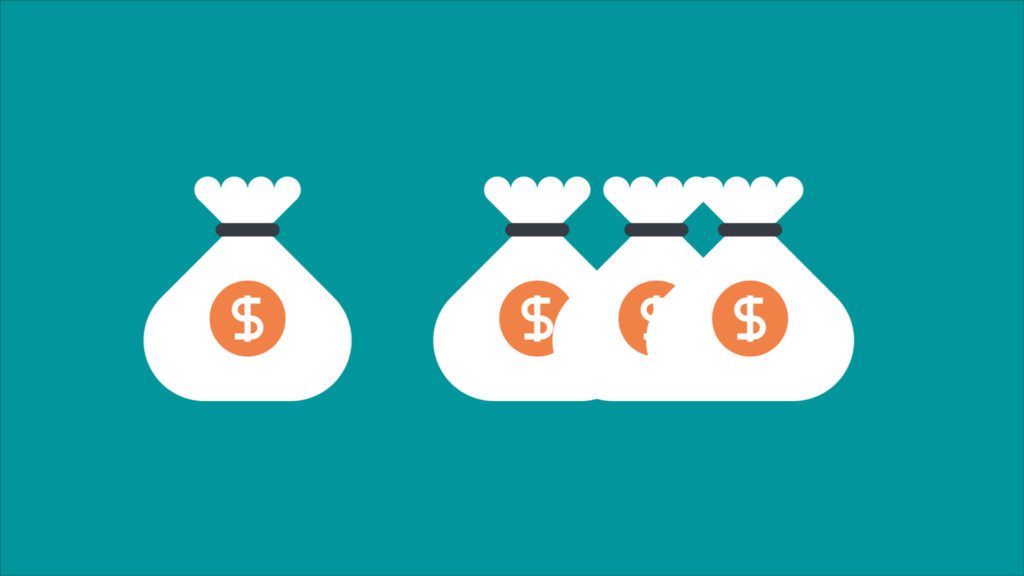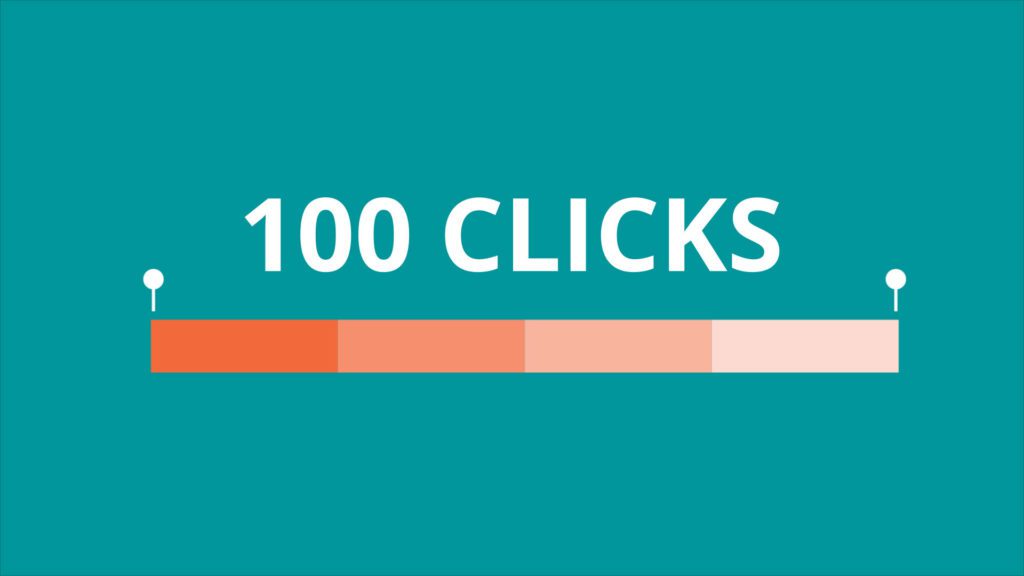Today, we’re going to talk about how to reassess your Google Ads
There’s a lot of tools out there for AdWords budget calculators. There’s a lot of information on the internet regarding how you should determine your budget. What there isn’t a lot of information on is how to reassess your Google Ads budget. How do you re-think your PPC spend after you’ve started to do it? That’s what we’re going to talk about today.
Common Google Ads Budget Situations We’ve Seen
One of the most common things we see is someone goes into an AdWords campaign for the first time and they’re trying to decide, “Okay, how much do we need to spend?” Then there’s always that really difficult, kind of underlying conversation of “how much will we actually get approved to spend, right?”
There’s a fine line between how much you need to spend and how much you’re approved to spend. It’s really important to understand those differences when you go into it.
What you don’t know going into it is any of the real information.
When you’re reassessing your AdWords budget, there are some things you really need to look at. Let’s take a look at a couple of situations we see very often here when re-evaluating your Google Ads budget.
You’re Losing to Rank. Your Search Impression Share is Lost to Budget.
First. You’ve launched the campaign, you’re happy with some of the conversions, but you want more.
The number one thing you should be asking either your internal team or your agency is “What’s my search impression share? How much of it is lost to budget? How much is it lost to rank?”

If you’re losing it to rank, that’s usually something that’s somewhat in your control. You can take that search impression share and increase it by creating more focused campaigns, more relevant campaigns, and better campaigns. That’s more of an hours and time thing than a budget thing.
Other times, your search impression share might be lost to budget. That’s due to your spend. Traditionally, that means that the cost per click for a set of keywords in a budget is greater than the daily budget you have set in AdWords.
That means that you could have a campaign that’s driving conversions at the cost per conversion you desire, but you’re not showing up all the time.
One of the simplest things you can do to reassess your Google Ads budget is to simply increase your daily budgets on your most profitable campaigns and allow yourself to grow. This is a really important thing. Here’s why.
You Can’t Make The Proper Decisions to Grow Your Volume of MQLs
The reason this is so important is if you have such a rigid framework for your budget, you can’t make the proper decisions to actually grow your volume of marketing qualified leads.
Here’s what I see happen all the time.
People start this PPC campaign and they say, “Look, we want to grow with you. This is where we can start, but we know, once we get results, we can reassess our budget.”
The honest truth is in the last four and a half years, I’ve seen probably less than 5% of our clients actually reassess budgets when they did get results. That’s a problem. What you end up doing is instead of trying to grow your campaigns around — for example — search impression share. You make sure you’re always showing up for your most profitable words, but then you lose all your experimentation.
Ideally, what you want to be able to do is max out your best-performing campaigns, but still have enough budget left to test new campaigns around new keywords, new positions in the funnel, new types of campaigns, different channels, paid social — LinkedIn, Facebook — and testing display.

We haven’t had a lot of success here around display campaigns, in comparison with search for B2B, but you could at least test for your individual business because nothing’s ever for sure. You can’t test if you don’t have the ability to reassess your Google Ads budget. That’s critical.
You Have a Timeline That’s Shorter Than Your Google Ads Budget Allows
Another time that is important to reassess budgets is if you have a timeline that’s shorter than your budget allows.
Perfect example: You want to get results in the first 90 days of starting your AdWords campaign. You’ve never done it before, you want to launch, you need to go back to the executive team in the next quarter and say, “Here’s the investment we made, here’s what we got back from it.”
The problem is usually when people do this, they start with a really small budget. “It’s not been proven yet, this is a test campaign, we want to prove it out.”
The problem is sometimes your test campaign budget doesn’t allow for the clicks necessary to get to the optimizations that allow your cost per acquisition to go where it needs to be for the test to ever be successful. What you’ve done is you’ve created a situation where the most likely outcome is failure. You never want that to be the case.
If you’re in a spot where your budget is too small, then expand your timeline.

Know that you need at least a hundred clicks on a keyword before you really feel that it’s statistically significant to turn it on or off. If the clicks to get to a hundred are more than your budget, then you won’t get there in enough time to turn the keywords off to lower your cost per acquisition to make the campaigns the success you want them to be.
If you have a timeline that’s shorter than your budget allows for you to get success, that’s the time you’re going to want to reassess you Google Ads budget. Even if you mess up at first, it’s better to go back to your team or to your agency and say, “Okay, guys, we need to reassess this budget to actually get to our goals.” That’s okay to do.
Your Campaigns Just Aren’t Working
Lastly, it’s really important to reassess your budgets when the campaigns just aren’t working. That’s a reality. Not always does every campaign work.
This is a great opportunity to reassess the budget because maybe, just maybe, the campaign needs more time and you don’t need to totally shut it off, but you can reassess your budget. In other words, maybe you don’t have the money right now to experiment more, so you don’t want to run an alpha and beta campaign where alpha’s your top-performing campaigns. You know those work. They have 100% search impression share and your beta campaigns’ at 50%.

Maybe you just can’t do any beta campaigns, maybe cash is tight at the firm. Maybe you got a bad quarter, for whatever reason. Sometimes, lowering spend is a lot better than pausing it entirely. Really look at your campaigns and say, “Is there any part of what we’ve done that is salvageable that we can continue to do,” instead of just pausing the entire thing.
Not every budget needs to be reassessed to grow. Some need to be reassessed to diminish. To do so takes a fine amount of expertise and analysis to make sure that you don’t sabotage all your efforts. Sometimes, especially with paid search and advertising in general, there are indirect benefits to the campaigns you’re running and you might not be giving those campaigns all the credit they deserve.
This is a great way to look at multi-channel attribution if you’re using a tool like Bizible, like we do for ourselves, or if you’re looking at your Google Analytics and you’re looking at multi-touch attribution. It’s really important that you fully understand this before completely pausing or diminishing your budget and the value that it could be indirectly providing some of the other campaigns.
Everybody wants direct attribution, but sometimes, it’s just not reality. That’s okay if you don’t have it. It’s better to reassess it and maybe pump it down a little, instead of completely turning it off. Seeing what happens when you do that and then once again, reassessing your budget based off your smaller spend to see if you still hit your goals.
Final Thoughts
Hopefully, this video has been informational and helpful to give you a new framework for reassessing Google Ads budgets. If your campaigns are doing well, instead of trying to move things around, it’s always worth it to try to grow the budget if you’re doing well. It makes you look good, it makes your agency look good, and it helps in your overall objectives.
If campaigns are underperforming, it’s okay to step back. It’s okay to slow them down. It’s okay to cut away the fat. You should always be reassessing your Google Ads budgets. Stagnant budgets are one of the hardest things that in-house marketers are dealing with right now because they don’t have the freedom to adjust to the results they’re gathering. Make sure you have a flexible budget so you can reassess on the fly.
As always, subscribe to our channel and feel free to leave a comment below. Thanks and have a great day.
-
 CEO
Garrett Mehrguth
CEO
Garrett Mehrguth
Did you enjoy this article?
Share it with someone!
